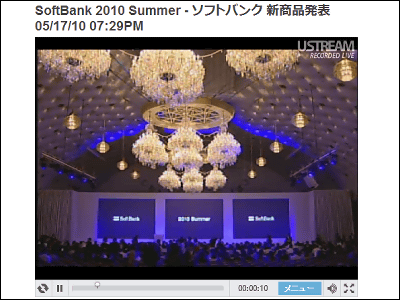While calling for Japan not to use Japan's first public NTP service, which has been independently operated by Fukuoka University, there is also the fear that future outages may have a global impact.

by Daniele Levis Pelusi
Fukuoka University has provided a public NTP service (time synchronization service) using GPS since 1993. This was the first public NTP service in Japan, but has been chronically plagued by heavy traffic as the number of service users has increased, and as of January 2019, it is constantly using a band of about 270 Mbps It is said that it is in a state. Therefore, stable operation of the on-campus network is difficult, and Fukuoka University has announced that the service will be stopped in the future.
Public NTP Service | Fukuoka University Information Technology Center
https://www.ipc.fukuoka-u.ac.jp/service/ntp/public_ntp/
Current Status and Issues of Open NTP Service at Fukuoka University
(PDF) https://www.janog.gr.jp/meeting/janog41/application/files/9815/1692/5488/janog41-sp10ntp-fujimura-03.pdf
Fukuoka University's public NTP service has long been favored by many for its first public NTP service in Japan. The big problem is that there is a lot of access to the server for this public NTP service.
The reason for the high access is that the firmware of various network devices is embedded with the IPv4 address of the Fukuoka University NTP server.
In 2017, TP-Link wireless LAN relay devices sent NTP queries to the NYP server frequently, and it became clear that 715.4 MB of communication was performed in a month. The IP address of Fukuoka University's NTP server is embedded in the wireless LAN relay device made by TP-Link, which seems to be one of the causes of abnormal access concentration to the NTP server.
TP-Link Wi-Fi Repeater Is Determined To Communicate 715MB Per Month Due To Frequent Requests-GIGAZINE

According to Fukuoka University, 'it is not only TP-Link ones' that embedded the IPv4 address of Fukuoka University's NTP server in the firmware. Actually, we surveyed equipment from multiple manufacturers and stated that it was confirmed that the IPv4 address of the Fukuoka University NTP server was embedded.
It is said that the present condition of Fukuoka University is that the traffic of public NTP service is increasing too much by this influence, and a wasteful cost is generated to the network operation on the university side. Fukuoka University has announced the end of its public NTP service as of 2018, as the problem may worsen even if the service continues.
It is necessary to stop the NTP server with the end of the service, but when Fukuoka University stopped the NTP server in the past, NTP request packets (retrys) increased extremely and the entire university network was stopped. It is said that there is a case.
Therefore, for technical verification, Fukuoka University is planning to stop service of NTP server, and this experiment was conducted on June 30, 2019. The contents are summarized in Togetter by @tanyorg of NTT West Japan, who manages the server.
On the Fukuoka University NTP service stop experiment conducted on June 30, 2019-Togetter
https://togetter.com/li/1371833
According to the official Twitter account created by Fukuoka University in preparation for the end of the public NTP service, the service suspension experiment was conducted for eight hours from 09:00 to 17:00 on June 30, 2019.
Announcement about Fukuoka University Public NTP Service
— Fukuoka-u-ntp (@u_ntp) June 26, 2019
Stop the service of 133.100.9.2 experimentally. The suspension period is scheduled for 9:00 am to 5:00 pm on June 30, 2019.
For more information, please visit the following web page. https://t.co/8TwpsKkHWn # Fukudai NTP
As of June 25, 2019, NTP server traffic is about 250 Mbps for inbound.
Current traffic condition, inbound is about 250Mbps, about 320,000pps. # Fukudai NTP pic.twitter.com/ISawSFkvDZ
— Fukuoka-u-ntp (@u_ntp) June 26, 2019
In fact, when the NTP server was shut down, traffic exploded from approximately 250 Mbps to 460 Mbps within 3 hours of shutdown.
Fukuoka University NTP server, 3 hours from the stop, the current traffic is less than 460Mb / s, 580,000 pps. # Fukudai NTP pic.twitter.com/RhCCuPtxsa
— Fukuoka-u-ntp (@u_ntp) June 30, 2019
Traffic increased to 600 Mbps at 14 o'clock (5 hours from the stop). This seems to be receiving 800,000 requests per second.
As of 14:00, Fukuoka University NTP server has exceeded 600Mb / s. It is 800,000 pps. In the case of 800,000 pps NTP is 800,000 requests per second. # Fukudai NTP pic.twitter.com/fzd9Onyp1f
— Fukuoka-u-ntp (@u_ntp) June 30, 2019
Traffic rises to 730 Mbps at 15 o'clock (6 hours from the stop).
Fukuoka University NTP Server, 730 Mb / s as of 15:00, exceeded 930,000 pps.
— Fukuoka-u-ntp (@u_ntp) June 30, 2019
It is likely to increase still more. # Fukudai NTP pic.twitter.com/Q7hTxT2mC9
After the experiment, the NTP server traffic is approximately 265Mb / s by inbound. It seems that the traffic was almost restored at the moment of resumption, which is the same result as the past stop experiment.
Fukuoka University NTP server, current traffic is about 265Mb / s, 330,000pps by inbound. At the moment of resuming service, we almost returned to the original traffic. This is the same result as the stopping experiment performed in the past. # Fukudai NTP pic.twitter.com/iIVwaP5MoP
— Fukuoka-u-ntp (@u_ntp) June 30, 2019
In addition, @ tanyorg who manages NTP server talks about the current situation that Fukuoka University fell into, saying 'I want to let a lot of people know this situation and let them know not to set'. I am tweeting 'Please speak' to server-related technicians who want to hear
Fukuoka University NTP server, I want to let many people know this situation, I want to tell you not to set. In the NW system, I spoke in the past with JANOG, ENOG and QUNOG. Even if you're a server, 'I want to hear the story! Please call me if you are there. # Fukudai NTP
— Tany / Tani Tani (@ tanyorg) June 30, 2019
Related Posts:
in Web Service, Posted by logu_ii






